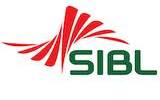What is Investment:
Investment means to buy goods and services with a view to earn profit with risk of loss. When these goods and services are sold again , money comes back. This cyclic process may be expressed as follows:
“Transformation of Money into goods with risk of loss, again Transformation of goods into Money”.
Investment is not possible without Bai & Bai means Buying and Selling.
Modes of Investment:
There are three Investment Modes which are:
- Trading Mode (Bai Mechanism)
- Bai Murabaha
- Bai Muajjal
- Hire Purchase (Ijarah)
- Hire Purchase under Shirkatul Malk (HPSM)
- Mudaraba
- Musharakah
- Bai Salam
- Bai Istishna’a
- Leasing Mode (Ijara Mechanism)
- Share Mechanisms
Description of three investment modes:
Trading modes (Bai-Mechanism)
i. Bai-Murabaha
Meaning:
The terms “Bai” and “Murabaha” have been derived from Arabic words Murabaha” and “Bai”. The word Bai means purchase and sale and the word Murabaha means a in cash” Bai-Murabaha meas sale for which payment is in cash or in future fixed date or within a fixed period. In short, it is a sale on cash.
Definition:
Bai-Murabaha may be defined as a contract between a buyer and a seller under which the seller sells certain specific goods (permissible under Islamic Shariah and the Law of the land), to the buyer at a cost plus agreed profit payable in cash or on any fixed future date in lump-sum or by installments. The profit marked-up may be fixed in lump-sum or in percentage of the cost price of the goods.
Types of Murabaha:
In respect of dealing parties Bai-Murabaha may be of two types.
Ordinary Bai-Murabaha:
If there are only two parties, the seller and the buyer, where the seller as an ordinary trader purchases the goods from the market without depending on any order and promise to buy the same from him and sells those to a buyer for cost plus profit, then the sale is called Ordinary Bai-Murabaha.
Bai-Murabaha on Order and Promise :
If there are three parties, the buyer, the seller and the Bank as an intermediary trader between the buyer and the seller, where the Bank upon receipt order from the buyer with specification and a prior outstanding promise to buy the goods from the Bank, purchases the ordered goods and sells those to the ordering buyer at a cost plus agreed profit, the sale is called “Bai-Murabaha on Order or Promise”, generally known as Murabana.
This Murabaha upon order and promise is generally used by the Islami Banks, which undertake the purchase of commodities according to the specification requested by the Clients and sale on Bai-Murabaha to the one who ordered for the goods and promised to buy those for its cost price plus a marked-up profit agreed upon previously by the two parties, the Bank and the Clients
ii. Bai – Muajjal:
Meaning:
The terms “Bai” and “Muajjal” have been derived from Arabic words Ajal and Bai. The word Bai means purchase and sale and the word Ajal means a fixed time or a fixed period” Bai-Muajjal meas sale for which payment is made at a future fixed date or within a fixed period. In short, it is a sale on credit.
Definition:
Bai-Muajjal may be defined as a contract between a buyer and a seller under which the seller sells certain specific goods (permissible under Islamic Shariah and the Law of the Country), to the buyer at a agreed fixed price payable at a certain fixed future date in lump-sum or within a fixed period by fixed installments. The seller may also sell the goods purchased by him as per order and specification of the Buyer.
iii. Bai – Salam:
Meaning:
The terms “Bai” and “Salam” have been derived from Arabic wordsBai and Salam. The word “Bai” means “sale and purchase” and the word Salam means “Advance”. “Bai-Salam” means Advance Sale and Purchase.
Definition:
Under this mode Bank will executive purchase contract with the client and make payment against purchase of product, which is under process of production. Bai-Salam contract will be executed after making any investment showing price, quality, quantity, time, place and mode of delivery. The profit is to be negotiated. The payment as the price of the goods is made at the time of Agreement / on the spot and the delivery of the goods is deferred.
Bai-Isteshna’a:
Meaning:
The word istisna has been derived from the word” Istisna” which means industry or Manufacturing enterprse. Istisna means to goods manufactured by placing orders to a manufacturer.
Definition:
Isteshna’a is a contract between a manufacturer/seller and a buyer under which the manufacturer/seller sells specific product(s) after having manufactured, permissible under Islamic Shariah and Law of the Country after haying manufactured at an agreed price payable in advance or by installments within a fixed period or on/within a fixed future date on the basis of the order placed by the buyer.
Leasing mode (ijara mechanism):
i Hire purchase /Ijarah :
The term Ijarah has been derived from the Arabic works Ajr and Ujrat which means consideration, return, wages or rent. This is really the exchange value or consideration, return, wages, rent of service of an Asset. Ijarah has been defined as a contract between two parties, the Hiree and Hirer where the Hirer enjoys or reaps a specific service on benefit gainst a specified consideration or rent from the asset owned by the Hiree. It is a hire agreement under which a certain asset is hired out by the Hiree to a Hirer against fixed rent or rentals for a specified period.
ii Hire Purchase Under shirkatul Melk:
Hire purchase under shirkatul Melk is a special type of contract which has been developed through practice. Actually, it is a synthesis of three contracts: Shirkat, Izara and sale. Shirkat means partnership. Sharikatul Melk means share an ownership. When two or more persons supply equity, purchase an asset, own the same jointly, and share the benefit as per agreement and bear the loss in proportion to their respective equity, the contract is called Shirkatul contract.
Stages of Hire Purchase under Shirkatul Melk:
Thus Hire Purchase under Shirkatul Melk Agreement has got three stages:
- Purchase under joint ownership.
- Hire and
- Sale and /or transfer of ownership to the other partner Hirer.
Types of sale contract in hire purchase under shirkatul melk
As per procedure of transfer of ownership and legal title of the part owned by the Bank is transferred to the other partner, the sale contract may be of various, some of the major forms are mentioned below:
Hire Purchase under Shirkatul Melk through gradually transfer (sale) of legal title/ownership of the hired asset/property
Under this type certain .asset / property’ is purchased with equal or unequal equity participation and owned jointly by the parties -the Bank and the Client. The Bank’s share / portion of the asset is hired out to tIle Client partner against fixed rent/rentals per unit of time for a fixed period with a promise that the Hire Bank will sell or transfer the ownership of its portion to the Client Hirer gradually part by part in proportion to the consideration paid. So that the Hire’s portion of the asset on payment of the total price at the end of the hire period.
Under this system the total price of the hired property / asset should be determined and divided over the period of hire contract (per unit of time) so that the Hirer in addition to the payment of fixed rent /rentals may pay gradually the proportionate consideration of the total price of the hired property or asset to acquire proportionate ownership of the same part by, part and become full owner of the hired asset at the end of the hire period.
It should be noted that there should be a separate sale contract for payment / acquisition of each share (per unit of time as per hire deal) / part of asset sold to the Hirer and the amount of rent should be decreased proportionately with decrease of Hire’s ownership and increase of Hirer’s ownership on the property/asset.
If, for any reason, the hire contract is revoked prior to the payment I transfer of full title to the Hirer, the Hirer will share that part of the title to the hired property which has been transferred to him against payment made by him and the remaining part will be shared by the Hire Bank. If any loss arises to the Bank after the sale of Bank’s share to the property / asset that shall be recouped from the Client / Client’s security. In our Bank, we shall be following this type of Sale Contract in Hire Purchase under Shirkalul Melk.
Hire Purchase under Shirkatul Melk through transfer of legal title by gifts (for no consideration)
Under this type the portion of asset owned by the Hire partner is hired out to the Hirer partner with a prior promise that the Hire, upon settlement of all the rent / rentals / installments by the Hirer, will transfer his ownership I title to the property to the Hirer through gift without any further consideration.
After the expiry of the hire period and payment of the entire rent /rentals installment, the title of property may be transferred by a separate gift deed executed by the Hire or, the title may be transferred by issuing a gift deed by the Hire making it conditional on the settlement of all rental installments. In the later case, the legal title is automatically transferred as soon as the hire period expires and the fixed rent installments for rent are settled. The working of the agreement would be: If the agreed upon rental installments are settled within the agreed upon period, ownership of the asset will be transferred to the Hirer as gift.
Under this mode the rentals fixed and agreed upon will be sufficient not only to amortize the capital outlay but also to yield an adequate amount of profit for the Hire. However, tile rent / rentals agreed upon shall not be considrered as price or part of price of the asset and the full ownership of the asset shall lay with the Hire till final settlement of the rent I rental installments.
Hire Purchase under Shirkatul Melk Through transfer of legal title (sale) at the end of hire period for a token consideration:
Under this contract the possession of the asset owned by the Hire is hired out to the hire for a fixed period against fixed rent / rentals and at the end of the hire period the title to the asset is transferred to the Hirer by a separate sale contract on payment of agreed upon token consideration. The consideration may be equal to the value of the asset or not and it would be sufficient if a mutual agreement is reached on the consideration.
Hire Purchase under Shirkatul Melk through transfer of legal title (sale) at the end of Hire period for payment of a specified amount to the hire by the hirer:
- This agreement includes an Ijarah / hire contract and a sale contract. Under this agreement a specific asset is hired out for a fixed period against specific rent mentioning a specific consideration to be paid by the Hirer (buyer) after the expiry of the hire period and upon payment of the agreed upon consideration. The hired asset becomes sold and its title transferred to the Hirer (the buyer). Under the agreement, the hire contract becomes effective firstly sale contract will be effective only after the expiry of the hire contract.
- Hire Purchase under Shirkatul through transfer of legal title (sale) period to the end of the hire term for a price that is equivalent to the remaining Ijarah /rental instruction. This is an Ijarah hire agreement which includes a promise made by the Hire that he will transfer the title of the hired property to the Hirer at any time during the hire period on payment of the remaining Ijarah /rental installments, if the Hirer wishes so. Under this system first, the Ijarah/hire contract becomes effective and remains so until the legal title is transferred to the Hirer. As soon as the title to the asset is transferred to the Hirer the ijarah/hire contract lapses for the remaining period, because both tile benefit and the hired property become the Hirer’s property. This type of sale should be executed by a separate sale contract at the time of sale.
Taking delivery of asset by the bank (hiree) and the (client) hirer:
After finalization of purchase of the Hire Purchase under Shirkatul Melk asset/property either by the Bank officials or through any Agent or the Client Agent from the local or outstation market, the Bank shall request the seller/suppliers to delivery the asset/property purchase to the Bank’s Authorized Official/ Agent/ Representative/ Client/ Bank’s Godown against proper acknowledgement Accordingly the authorized official /Agent /Representative /Client shall receive delivery of the asset/property on behalf of the Bank by signing the Delivery Challan or the Cash Memo/purchase Schedule which will be in the name of the Bank and the Client.
Hire, Delivery, Sale and Transfer of Title of Asset to the Client:
On receipt of the asset, calculate the total cost price of en same as per proforma mentioning clearly the Banks & the client’s equity and their respective ownership ration to the asset (MANUAL, IBTRA).
Share mechanism:
i. Mudarabah:
It is a form of partnership where one party provides the funds while the other provides the expertise and management. The first party is called the Sahib-Al-Maal and the latter is referred to as the Mudarib. Any profits accrued are shared between the two parties on a pre-agreed basis, while capital loss is exclusively borne by the partner providing the capital.
ii. Musharaka:
An Islamic financial technique adopts “equity sharing” as a means of financing projects. Thus, it embraces different types of profit and loss sharing partnership. The partners (entrepreneurs, bankers) etc. share both capital and management of a project so that profits will be distributed among them as per rations, where loss is shared according to ratios of their equity participation.
There are two other modes of investment which have limited impact in our country:
i Quard:
The word “Quard” is Arabic word which means loan or credit on advance. The literal meaning of Quard is giving “Fungible goods” for use without any extra value returining those goods. It must follow the principle of equal for equal return with homogenious goods. Fungible goods may be rice, oil, salt, money etc. In banking sector, money is used as quard. Quard is Halal by Islam for not to pay any extra or interest in return.
ii. Quard-E-Hasana:
Quard-E-Hasana is also one kind of Quard which is given with the expectation of return or not.
Operational procedures of the investment of IBBL:
Induction of client
Application
Categorization
Processing and appraisal
Sanction
Documentation
Purchase of goods by the Bank
Taking delivery of goods by the Bank
Sales and delivery of goods to the client
Induction of Client:
Hold preliminary discussion with the prospective client his investment needs, business experience, viability of the project and Shariah permissibility of the assets, the business and the uses of the asset.
- Brief him on the salient features of Bai-Murabaha mode of investment.
- Look to the past performance of the client.
- Check-up Head Office Current investment policy and Branch’s track record of bai-Murabaha Investment of thie items.
- If the proposal is found permissible under Islamic principles and suitable, advise the client to submit formal Application, if not found suitable, regret politely.
- Request potential client to open an Al-Wadia current Accont. Let him maintain the Current Account Satisfactorily for a reasonable period. This will generally mean six months).
Application:
Obtain application in Duplicate from the cient on F-167A and record the same in the investment proposal Received and Disposal Register (B-55). Deal Application shall be obtained on F-136.
- Obtain and affix attested photograph(s) of the Proprietor /Partners /Directors /Trustee /Administrator on the top right hand corner of the application.
- Scrutinize the application of the client to see that :
A. All columns are properly filled in.
B. Particulars information given therein is complete and correct all respect.
C. All required Documents /Papers as listed inthe footnote of the application
are submitted.
D. The client as per specimen signature with the Bank signs it.
Processing and appraisal:
Enter the Application in the “Investment Proposal Received and Disposal Register (B-53) and allot a Serial Number to it.
- Examine shariah permissibility of the goods. Reject the proposal outright, if not permitted by Islamic Sharah.
- Check-up Credit Restriction Schedule of Bangladesh Bank and Head Office Current Investment Policy Guidelines.
- Visit the Business establishment of the Client. Talk to the business and important personalities of the locality to ascertain the Honesty, Integrity and Business dealings of the Client.
- Request for confidential report of the client from local Bank Branches. Confident Report from Credit Information Bureau (CIB) of Bangladesh Bank through Head Office Investment Divisioin as per Instruction Circular of Head Office in this Regard.
- Optain Financial Statement/Balance Sheet of the Client for the last three consecutive years for Investment Proposals of Tk. 50.00 lac or above as per Head Office Instruction.
- Inspect Land, Building, other Assets and Properties proposed to be Mortgaged or Hypothecated.
- Forward Documents, Title Deeds and other relevant Papers to approve Lawyer of the Bank for examination and furnishing his opinion.
- Obtain Lawyer’s Opinion as per clause No. 8.02.
- Please study the following carefully and note down the actual findings in the Appraisal Form against each item :
Effective demand, price of the goods, short or long-term duration, quality and other specifications of the goods, availability, etc. of the said or projected goods.
- Where sale price of the goods is payable by the client at specified future date in lump sum or installments as per proposal.
- For Bai-Murabaha Commercial and Bai Murabaha Industrial Investment, prepare Appraisal Report on F-167B. For appraisal Bai-Murabaha agriculture and For Bai-Murabaha Import use special Appraisal Form devised for each of those, if any, otherwise F-167B providing the available/required supplementary information. In course of preparation of the appraisal report please ensure incorporation of all information of all information, particulars figures and statistics in Appraisal Form correctly with special attention to the following: Contact primarily with the producers/sellers/suppliers of the goods in the market, study the market price and work out the purchase and sale prices of the goods as per guidelines.
Sanction:
- On completion of Appraisal as provided herein above, of the Proposal is found viable, issue Sanction Advice (F-188) if it is within the business power of the Branch mentioning all the terms and condition is duplicate to the Client and endorse copies to Zonal and Head Offices retaining one copy in the Clien’ts file duly accepted by the Client.
- If the proposal is not within the Discretionary Power of the Branch, the Branch shall with Appraisal Report on F-167A and F-167B to Zonal Office/Head Office.
- If the proposal is within the Business Power of the Zonal Office, Zonal Office shall accord Approval /Regret the Proposal.
- If the proposal is not within the Business of the Zonal Office shall forward the proposal to Head Office with their views and recommendations.
- On receiving the proposal and the Appraisal Report along with supporting papers Head Office will either approve or Regret.
- If the Branch/the Zonal Office /Head Office, the branch will issue the Sanction advice (F-188) with a copy to Zo/HO duly recorded in /Facility Sanctioned Register (B-119) with authority to the investment Client for the limit.
- If the client duly accepts the sanction terms and conditions enter the particulars of the sanctioned proposal in the limit Register (B-117) allotting a Fixed Serial number for each Client as per Limit Register which shall remain permanent irrespective of the mode(s) so long the Client continues business with the Bank.
- Open file Client-wise, affixing the Fixed Number allotted to him as per Limit Register (B-117) and Client’s name, address, telephone number be recorded prominently in the inner side of the investment File for easy tracing in case of need.
- In case of investment to the existing Client, obtain required papers, document with the past performance and outstanding liabilities of the Client, if any and process of sanction the propsal as per instruction laid down here-in-above after due evaluation or study.
Documentation:
Before purchasing the asset/property by the Bank, obtain sufficient collateral securities as mentioned in the sanction advice along with the following charges documents properly executed, i.e. duly filled in, sighed, stamped, verified and witnessed where necessary:
- Bai-Murabaha Sanction Advice (F-188) deal-wise duly accepted by the Client.
- Bai-Murabaha (Deal-Wise) (AF-1).
- Joint and Several D.P. Note (CF-2).
- Single party D.P. Note (CF-1), if there is no guarantor.
- Double Party D.P. Note (CF-2), if there is guarantor(s) to be made by the Client in favor of the guarantor and endorsed by the later to the Bank.
- D.P. Note Delivery Letter (CF-3).
- Letter of Hypothecation (CF-5) for the asset(s) and Client’s stock in Trade /Work-in-Process.
- Letter of Disclaimer (CF-15), if the goods are stored in Client’s /party’ own/hired godown.
- Agreement for Pledge of Goods (CF-4).
- Insurance Policy (if stored in Client’s /Party’s Godown /Yard under Bank’s effective control duly recorded insurance Register (B-39).
- Letter of Gurantee (CF-14).
- Balance Confirmation Letter (CF-16)
- Trust Receipt (CF-11).
- Letter of Installments (CF-17).
If the Investment is made collaterally secured by Mortgage of property, obtain the following:
- In case of Equitable Mortgage, Memorandum of Deposit of Title Deed (MDTD) signed by the owner of the property.
- In case of Legal Mortgage, Registered Deed should be obtained.
- Personal Guarantee of the onner(s) of the properly on CF-14.
- Original title Deed(s) with CS, RS, SA, Mutation Parcha, DCR of the property and Mutatioin record.
- Upto-date Rent Receipt.
- Non-encumbrance Certificate along with Search Fee Paid Receipt of the concerned Registry Office.
- Site Plan (Map-Naksha) of the Mortgaged Property.
- Valuation Certificate issued by a competent Engineer and physically verified by the Branch Officials.
- Lawyer’s Certificate
- An affidavit sworn.
Where the Investment is secured by Hypothecation of Stock-in-trade, Machineries etc. also obtain the following Documents:
- Letter of Hypothecation (CF-5).
- Trust Receipt (CF-11).
- Legal Mortgage of Machineries.
In case investment is collaterally secured by pledge of Shares of reputed Public Limited Company on bank’s approved list and quoted in the stock Exchange, the following additional document are to be obtained:
- Agreement for Pledge of Shares.
- Share Transfer Deed in Duplicate.
- Share Delivery Letter
- Letter to the concerned Company to register Lien in Bank’s Favor.
In case of investment to Partnership Firms, obtain the following Document:
- Letter of Partnership
- Copy of Partnership Deed
In case of investment to Private or Public Limited Company, obtain the following document:
- Certified copy of the Memorandum and Articles.
- Resolution of the Board of Directors.
- Personal Guarantee of all the Directors.
- Certificated of Incorporation
- Certificated of Commerncement
In case of investment to a Trust Organization, obtain the following Document:
- Copy of Trust Deed.
- Resolution of the Board of Trustees
- Charge Document
- Personal Guarantee of the Office Bearer
In case of investment to Co-operative Society, obtain the following Document:
- Clearance from the Registrar
- Letter to be issued to the concerned Registrar
- Personal Guarantee of the Office Bearer
- A copy of Bye-laws of the Society.
In case of investment to Partnership Firms, obtain the following Document:
- Letter of Partnership
- Copy of Partnership Deed
In case of investment to Private or Public Limited Company, obtain the following Document:
- Certified Copy of the Memorandum and Articles.
- Resolution of the Board of Directors
- Personal Guarantee of all the Directors
- Certificated of Incorporation
- Certificated of Commencement
In case of investment to a Trust Organization, obtain the following Document:
- Copy of Trust Deed
- Resolution of the Board of Trustees
- Charge Document
- Personal Guarantee of the Office Bearer
In case of investment to Co-operative Society, obtain the following Document
- Clearance from the Registrar
- Letter to be issued to the concerned Registrar
- Personal Guarantee of the Office Bearer
- A copy of Bye-laws of the Society
Signature of the Client:
After completion of Document, enter Document in Documents Execution Register (B-103).
Movement of Document, if any, should be duly recorded in the Document Ex-custody Register duly singed by the Custodians.
Purchase of Goods by the Bank:
Remember that Bai-Murabaha is perfectly a ligitimate transaction according to the Shariah, provided:
That the goods desired by the Client are first purchased by the Bank and the ownership of the Bank on the goods is established, i.e. Bank must transform its money into goods.
That after purchase of the goods, the risk of the goods is borne by the Bank until the possession of the Merchandise has been passed on the Client.
That the specification of the goods, delivery schedule and other terms of contract are fulfilled.
- Obtain deal-wise application Order for Purchase on F-136 after due study.
- Open investment account in Investment Account Opening Register (B-102).
- Enter the Account Particulars in the Investment Ledger (B-105).
- It should be carefully noted that purchase of goods shall be made only after completion of all the Documentation formalities, including Pre-Audit memo (F215).
- In case purchase of Bai-Murabaha goods by the Bank on Ceredit/deffered payment basis, the Bank shall execute a Credit Purchase Agreement with the seller to that effect mentioning date of delivery of Goods to the bank and that of payment by the Bank.
- If the goods are to be purchased from the local or outstation market and money is to be paid/remitted thereof and other expenses such s TA/DA, transportation etc, shall be borne by the Bank, which shall ultimately be loaded on the cost of Goods.
Taking Delivery of Goods by the Bank:
- After finalization of purchse of Bai-Murabaha Goods either by the Bank officials or through any Agent from the local or out station market the Bank shall request the seller to delivery the goods purchased to the Bank’s Authorized official /Agent or to the Bank godown against proper acknowledgement.
- After taking delivery of the goods by the Bank or trough and Agent, the Bank shall make payment of the price of the goods to producers /sellers /supplier through DD/TT/PO against Cash memo which will exclusively be issued in the name of the Buying Agent.
- The Bank shall not be invest in such cases where the allotting Authority will not accept the Letter of Authority and agree to deliver the goods to the Bank as per authorization of this Allottee.
















